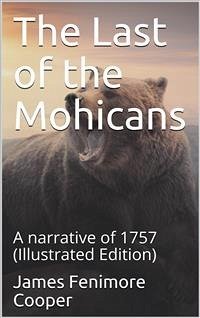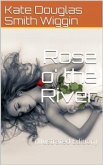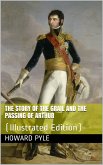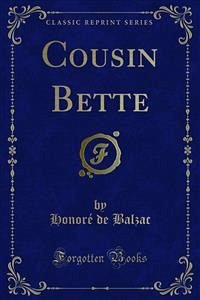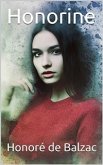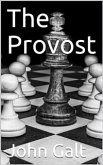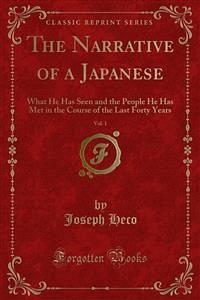The Last of the Mohicans: A Narrative of 1757 is a historical novel written by James Fenimore Cooper in 1826. Cooper set this novel during the Seven Years' War, an international conflict between Great Britain and France, which had a front in North America known by the Anglo-American colonists as the French and Indian War. The conflict arrayed British colonial settlers and minimal regular forces against royal French forces, with both sides also relying on Native American allies. The war was fought primarily along the frontiers of the British colonies from Virginia to Nova Scotia. Cora and Alice Munro, daughters of Lieutenant Colonel Munro, are traveling with Major Duncan Heyward from Fort Edward to Fort William Henry, where Munro is in command, and acquire another companion in David Gamut, a naive singing teacher. They are guided through the forest by a native named Magua, who leads them through a shortcut unaccompanied by the British militia. Heyward is dissatisfied with Magua's shortcut, and the party roam unguided and finally join Natty Bumppo (known as Hawk-eye), a scout for the British, and his two Mohican friends, Chingachgook and his son Uncas. Heyward becomes suspicious of Magua, and Hawk-eye and the Mohicans agree with his suspicion, that Magua is a Huron scout secretly allied with the French. Upon discovery as such, Magua escapes, and in the (correct) belief that Magua will return with Huron reinforcements, Hawk-eye and the Mohicans lead their new companions to a hidden cave on an island in a river. They are attacked there by the Hurons, and when ammunition is exhausted, Hawk-eye and the Mohicans escape, with a promise to return for their companions. Magua and the Hurons capture Heyward, Gamut, and the Munro sisters, and Magua admits that he is seeking revenge against Cora's father Colonel Munro for turning him into an alcoholic with whiskey (causing him to be initially cast out of the Hurons) and then whipping him at a post for drunken behavior. He then offers to spare the party if Cora becomes his wife, but she refuses. Upon a second refusal, he sentences the prisoners to death. Hawk-eye and the Mohicans rescue all four, and lead them to a dilapidated building that was involved with a battle between the Indians and the British some years ago. They are nearly attacked again, but the Hurons leave the area, rather than disturb the graves of their own fellow-countrymen. The next day, Hawk-eye leads the party to Fort Henry, past a siege by the French army. Munro sends Hawk-eye to Fort Edward for reinforcements; but he is captured by the French, who deliver him to Fort Henry without the letter. Heyward returns to Colonel Munro and announces his love for Alice, and Munro gives his permission for Heyward's courtship. The French general, Montcalm, invites Munro to a parley, and shows him General Webb's letter, in which the British general has refused reinforcements. At this, Munro agrees to Montcalm's terms that the British soldiers, together with their wounded, women, and children, must leave the fort and withdraw from the war for eighteen months. Outside the fort, the column of British prisoners is attacked by 2000 Huron warriors; in the ensuing massacre, Magua kidnaps Cora and Alice, and he leads them toward the Huron village. David Gamut follows them. Read this complete famous novel for further story....
Bitte wählen Sie Ihr Anliegen aus.
Rechnungen
Retourenschein anfordern
Bestellstatus
Storno

